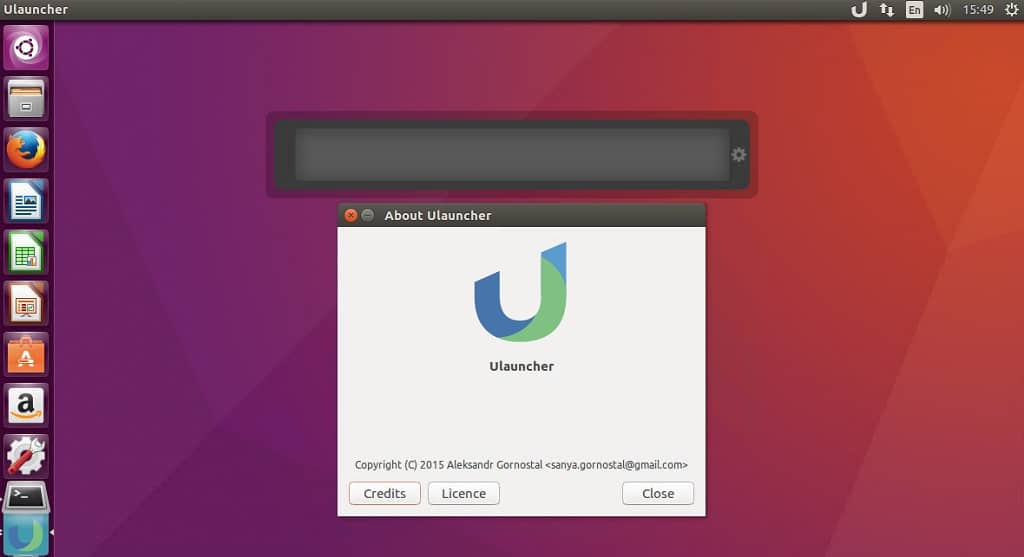Ulauncher is a simple desktop application for Linux that allows users to launch installed applications and open file directories using a fast and convenient user interface. It’s written in Python and uses GTK as a GUI toolkit.
Ulauncher Features
- Instant app launcher – App provides you with instant search results. It also remembers your previous choices and automatically selects the best option for you
- Fuzzy search – This feature allows you to type in an application name without worrying about wrong spelling. Furthermore, it will automatically figure out what you were trying to search for
- Fast directory browser – You can open your files and directories faster with the fuzzy search engine
See app in action
Ulauncher 2.2.1 Changelog
- <ctrl>
+
<a>then
<backspace>does not remove all input bug ready
- selection shortcut alt + 1 select incorrect option bug ready
- It’s search doesn’t work (for the first 5 minutes) bug ready
Planned v3 Release
- Plugin API.
- Developers will be able to create plugins that run along with the app and may extend Setting.
- Plugin website.
- Developers will be able to publish their plugins.
- Users will be able to search and install plugins.
- User ratings and comments will be available.
How to install Ulauncher on Ubuntu 17.04, Ubuntu 16.10, Ubuntu 16.04, Ubuntu 15.04, Ubuntu 14.04
- Note that I have outlined 3 methods of installing the app but only DEB package install worked for me on Ubuntu 16.04
From PPA
sudo add-apt-repository ppa:agornostal/ulauncher sudo apt-get update && sudo apt-get install ulauncher
From DEB Package
sudo apt-get install gdebi wget https://launchpad.net/~agornostal/+archive/ubuntu/ulauncher/+files/ulauncher_1.0.0_all.deb sudo gdebi ulauncher_1.0.0_all.deb
From Source
sudo apt-get install git git clone https://github.com/Ulauncher/Ulauncher.git cd Ulauncher ./install_deps ./run
./run will copy icon files to ~/.local/share/icons/ and .desktop file to ~/.local/share/applications/. Then it will run the app.
After you run ./run once, you can find and start ulauncher from your OS launcher (like Ubuntu Dash, etc.)

